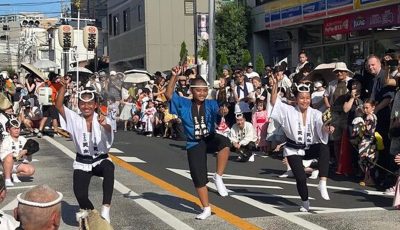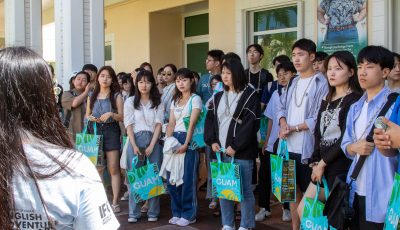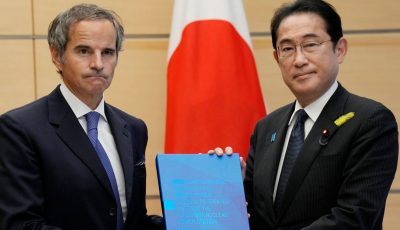As the WWII generation fades
The World War II generation is on its final sail into the sunset. I guess we could say with a heavy heart Si Yuus Maase` for your dedicated guidance and wisdom through the years. These are our elderly who lived before, during, and after the war. So what’s the importance of it all? Their stories are a part of “our” story.
I’ve been curious about their stories, often told fondly behind the façade of grateful nostalgia. I wanted to see and hear the full measure of their joyful and painful expressions as they recall experiences. I’ve picked my mom’s just to dig her mind why the mixed reaction of the good and bad times combined into one. Her forthright answers piqued my imagination.
“What the stores sold before the war to locals were animal and fish bones stripped of everything. It was done for a reason: export the meat to Japan.” Sad as it may sound today “our happier days was eased by the fact that most folks had something to place on the dinner table.” She said that no one ever begged for anything. “Everybody worked and rightfully earned his/her dues.” Indeed, she smiled even with watery eyes as we talked of her yesteryears.
“The bone marrow is the only thing left that gives our soup the beef or pork flavor we wanted.” She related that the meat was packaged and exported to Japan. “The goal was to feed a larger population from the islands.” The “what might have been” query rolled in: What if there never was a WWII, what would have been our future?
Though she despises some aspect of that period in history, she thought it was a bright chapter in our development. She said that folks worked the clock in family farms, land clearing, planting, harvesting and selling their best products while keeping excess for family use. “So we’re basically an agrarian community, industrious in every sense.” She related how folks head to the farm before dawn and worked until about 10am. “It starts to get warm so you take a break until about 4pm where you resume work until well after sunset.”
Bonita (tuna) caught in our waters was bought by a Japanese firm smoke-dried into katsuo bushi. It is shaved into hot miso soup or rice. The katsuo bushi was another market for fishermen here. The fishing base area was a beehive of activities for this purpose. It included the sale, cleaning, packaging fish and fish by-products and their eventual export to Tokyo markets.
Modern slaves: Apparel products were the only other exports we had in recent past, killed by the U.S. Congress, a $1.2-billion industry. Was it ever replaced? This and other relevant issues must be addressed and resolved responsibly. You see, the economy boils down to familial way of life. Must not we be clamoring in its defense rather than making salutary bows to Uncle Sam as modern day slaves? It’s economic ruination, true?
It’s their interest: Notice that even with the best that imperial Japan has undertaken for Micronesia on the economic front, it was never about a planned vision of our future? It was strictly military interests! Spain and Germany did the same too! Now it’s the great U.S. of A! Military! Is the NMI’s only salvation is its geographic and strategic location?
We must look at these experiences with some sense of vision and purpose and ponder reconciliation of sorts as we plan our future. Is there something else where truly genuine partnership could be re-established and nurtured as we move into the other half of this century? Somehow I feel somewhat optimistic that we should explore it once more.
Do we settle for it and end it here or do we use it as a temporary springboard to move forward? Where’s the indigenous clear view and resiliency in all these pile of confusion? Could we sift through it all and begin reconciling brighter and more secure tomorrows?
Most of the folks her age have faded into history. Only she and her generation knew what was it like on the islands before, during, and after the war. Sure, there were days of ups and downs on these isles. Whatever happened then and now never centered on the livelihood of the indigenous people. But then only we could say, “Enough is enough!”
Naval Administration: The Navy came in after the war and sealed off the island from the rest of the world for quite a period of time.
Capital Hill was a well-clipped and immaculate residential area for CIA top guns. We can’t pass through it at night nor could we visit Kagman and Marpi areas in view of CIA activities training Chinese soldiers. Perhaps it was “alienation,” however rationalized as unintended.
It is widely known that the military takes prime land for its purposes. We saw that in the use of beachfront properties in Susupe. Land was used for residential and official purposes. How sad that the Navy left and there remains unsettled some $100 million in land claims. Like I said, leadership should have demanded payment first in the return of land in 1977 before accepting any of it. It would have resolved a longstanding issue, half of which remains “longstanding” to date.
Gradually, we learned what self-government entails including paying for its operations. A 1 percent tax was proposed by the Congress of Micronesia and we burned its building down in the wee hours of the morning. We had a hard time understanding that self-government includes paying for its cost. We wanted even our salaries the equivalence of the Annual Christmas Drop.
Remember our reintegration agenda all focused on the dollar? It wasn’t anything else but the almighty dollar! Political maturation is a protracted process that eventually settled down like excess water runoff. We now know that government operations are funded via locally generated taxes. Welcome to real fiscal reality check!



























